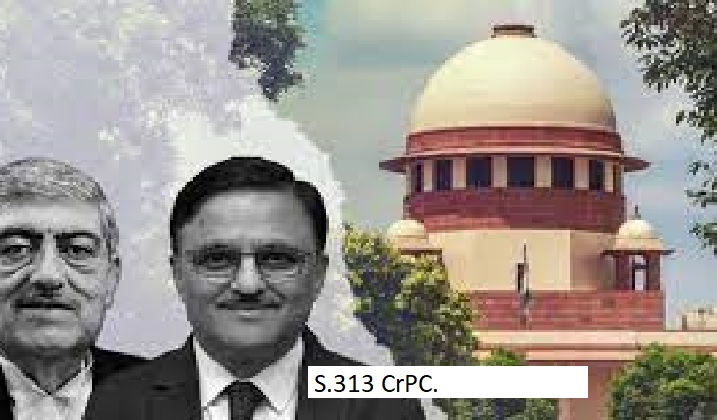


The Supreme Court has recently overturned the conviction of an appellant in a contraband possession case, citing procedural irregularities. The court emphasized the significance of adhering to Section 313 of the Code of Criminal Procedure (CrPC) during the examination of the appellant, asserting that the failure to present material circumstances amounted to a serious and material illegality.
In its ruling, the Court pointed out that the prosecution had not informed the appellant of the crucial circumstances against him during the examination under Section 313 of CrPC. This omission, according to the Court, resulted in serious prejudice to the appellant's defense. The Court acknowledged that the appellant might not have initially raised concerns about the inadequacy of the examination, but in this case, the failure went to the core of the matter concerning the appellant.
The appellant had spent over five years in jail for a case dating back to 2001, and subjecting him to further examination after such a long period would cause prejudice. The Court expressed concern that the appellant's incarceration duration, combined with the passage of more than twenty-two years, made re-examination under Section 313 of CrPC detrimental to his case. Consequently, the Court held that the conviction could not be sustained due to the fatal failure to present relevant circumstances during the appellant's examination.
The Supreme Court bench, consisting of Justices Abhay S. Oka and Justice Pankaj Mithal, heard the appeal against the Punjab & Haryana High Court judgment, which had upheld the conviction under Section 15 of the Narcotic Drugs and Psychotropic Substances (NDPS) Act. The special judge had sentenced the appellant to ten years of rigorous imprisonment.
The prosecution's case revolved around Assistant Sub Inspector Dhian Singh, who, acting on secret information, identified parcels at Ambala station containing contraband destined for Kurail Railway Station. Upon inspection, the Railway Protection Force found ten bags, each containing 20 kgs of poppy straw.
On May 28, 2001, Inspector Ram Phal and Dhian Singh visited Kurail railway station, where Krishan Dev Joshi, the station supervisor, was apprised of the situation. Accused no. 2, Rahish alias Munna, approached Joshi with a railway receipt related to the parcels, leading to his arrest. Subsequently, the appellant, Nababuddin alias Mallu alias Abhimanyu, inquired about the same parcels and was arrested as well.
Despite the recovery of contraband during transit, the Special Court ruled that those possessing the railway receipt exercised control over the illegal substances, constituting conscious possession. This finding was upheld by the High Court.
The Supreme Court scrutinized the case due to the omission of key circumstances during the appellant's examination under Section 313 of CrPC. The Court highlighted that the appellant, who had inquired about contraband parcels at the railway station, was not questioned about this crucial circumstance during his examination. Additionally, the fact that the railway receipt was in the appellant's name was also overlooked.
Consequently, the Court concluded that the two circumstances alleged against the appellant must be excluded from consideration, as there was no other material on record connecting him to the offense. The overturning of the conviction underscored the importance of procedural fairness and adherence to legal requirements in criminal proceedings.
TAGS: Supreme Court Conviction overturn Contraband possession Procedural irregularities Code of Criminal Procedure (CrPC) Section 313 Material circumstances